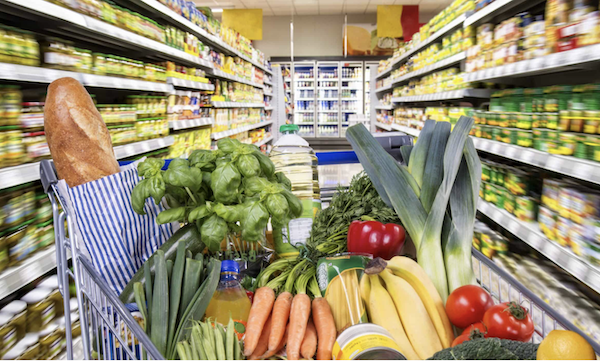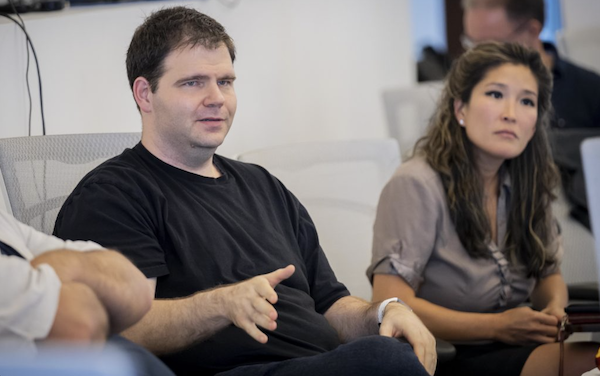Market scorecard
US markets edged lower from record highs as Trump ramped up his trade rhetoric. After notching its fifth record in nine trading sessions, the S&P 500 took a breather. Nearly 400 stocks in the index slipped, but a strong showing from the megacaps helped moderate things.
In company news, Levi Strauss jumped 11% after hiking its revenue outlook. The company expects sales of its iconic 501s to more than offset any tariff headaches from Trump's trade jenga. Elsewhere, Tesla is finally planting its flag in India, with their first showroom opening on Tuesday and deliveries possibly starting next month. The electric vehicle giant is looking to revive momentum by tapping into the world's third-largest car market.
On Friday, the JSE All-share closed down 0.15%, the S&P 500 fell 0.33%, and the Nasdaq was 0.22% lower.
Our 10c worth
Byron's beats

Since the Trump tariff tantrum of April 2025, the market has rallied 26%. That is marvellous, but not all sectors have rebounded. Since the 8th April market low, healthcare, staples, utilities, energy and financials are all lower, and discretionary, industrials and communication services are all pretty much flat since then.
The tech stocks have been leading the charge. In my view, the rally is being driven by the unbelievable AI phenomenon unfolding in front of our eyes. It has nothing to do with politics or tariffs or TACO.
We are living through and witnessing something very special. Enjoy the ride.
Michael's musings

Through my years studying economics, I regularly covered the topic of capitalism vs socialism. The rough narrative is that socialism lacks competition, meaning that there is limited innovation, so society as a whole then stalls. The best way to allocate resources is through competition, which might not always be fair, but society still moves forward.
Listening to a podcast recently about the fall of the Soviet Union, I was struck by how deep the narrative of everyone being viewed as equals actually goes. If all people are equal, then the checkout person at your corner shop is equal to the customer trying to buy something. It means that if the cashier wants to finish a chat with the neighbouring cashier, then customers need to wait. If everyone is equal, then why is the customer's time more important than the cashier?
The glaring differences between the two systems were so easy to see that one visit to a US grocery store by future Russian president Boris Yeltsin, was the final nail in Bolshevism's coffin. Seeing all the variety on offer to customers, and the appealing and inviting environment, showed how capitalism was winning even at a basic level.
Yeltsin said in his autobiography: "When I saw those shelves crammed with hundreds, thousands of cans, cartons and goods of every possible sort, for the first time I felt quite frankly sick with despair for the Soviet people."
Here is an interesting blog post on the event - How a Texas supermarket helped defeat communism.
Bright's banter

Silicon Valley chip startup Groq is reportedly in talks to raise $300-$500 million at a $6 billion valuation. The funding drive comes hot on the heels of a major Saudi deal: in February, the kingdom committed $1.5 billion to bring Groq's AI inference chips into the country.
Groq was founded in 2016 by Jonathan Ross, the engineer who led the team behind Google's first custom TPU AI chip. Frustrated by the limitations of existing hardware, he set out to build a new kind of processor - designed from the ground up for ultra-fast, low-latency AI workloads. The result? A chip so fast it speaks in tokens per second.
The new Saudi contracts could generate $500 million in revenue this year, a big jump from Groq's earlier days. The company last raised $640 million in August 2023 in a Series D round led by Cisco, Samsung Catalyst and BlackRock, at a $2.8 billion valuation. Groq's chips are designed for speed and efficiency when running pre-trained AI models, a key selling point as the AI arms race intensifies.
Linkfest, lap it up
Did you know that there is a South African behind Microsoft Windows? That would be Paul Maritz, born in Zimbabwe and educated in South Africa, who found his calling in computing - Quietly shaping the early development of Windows from behind the scenes.
Cyber crime is on the rise. Weak passwords make it easier for hackers - These passwords take less than 1 second to break.
Signing off
Asian markets opened mostly in the green this morning, brushing off Wall Street's Friday slump. Traders seem hopeful that the fog around US reciprocal tariffs might finally lift.
In local company news, Blue Label Telecoms is rebranding to Blu Label Unlimited Group. With Cell C heading for a separate listing, this feels like more than just a name change. It's a chance to rebrand the business as a broader tech outfit, not just a legacy airtime-and-sims player.
US equity futures are slightly lower pre-market. The Rand is trading at around R17.94 to the US Dollar.
US markets are kicking off earnings season. Six biggest US banks are set to roll out their numbers this week.
It is a new week, with new opportunities. Enjoy.